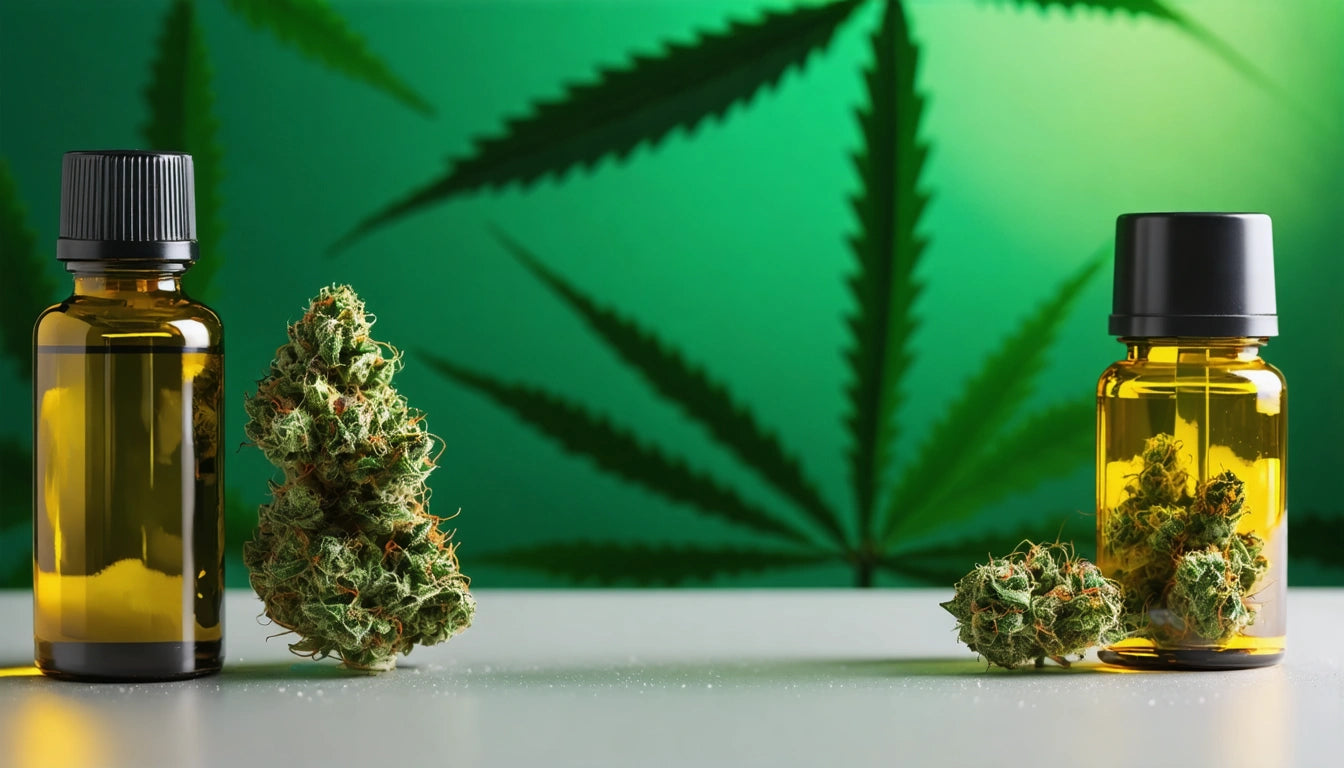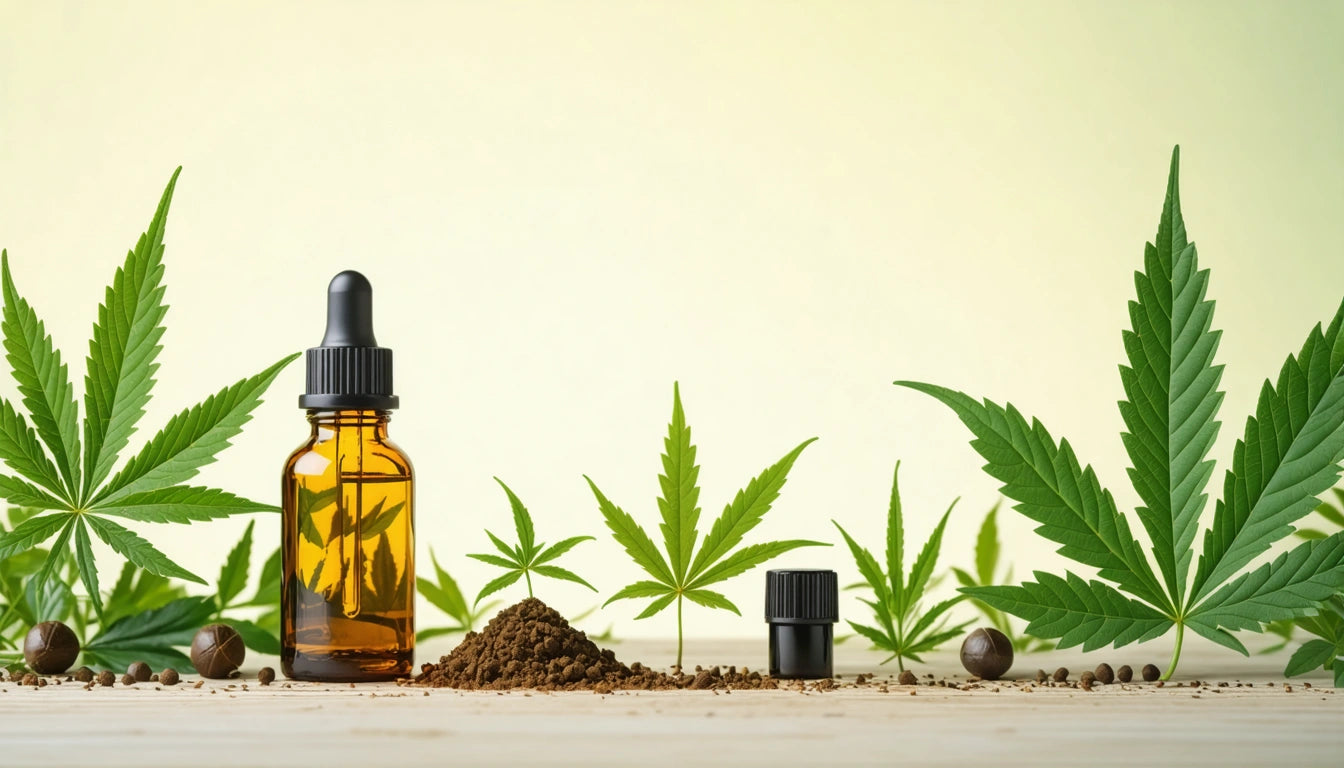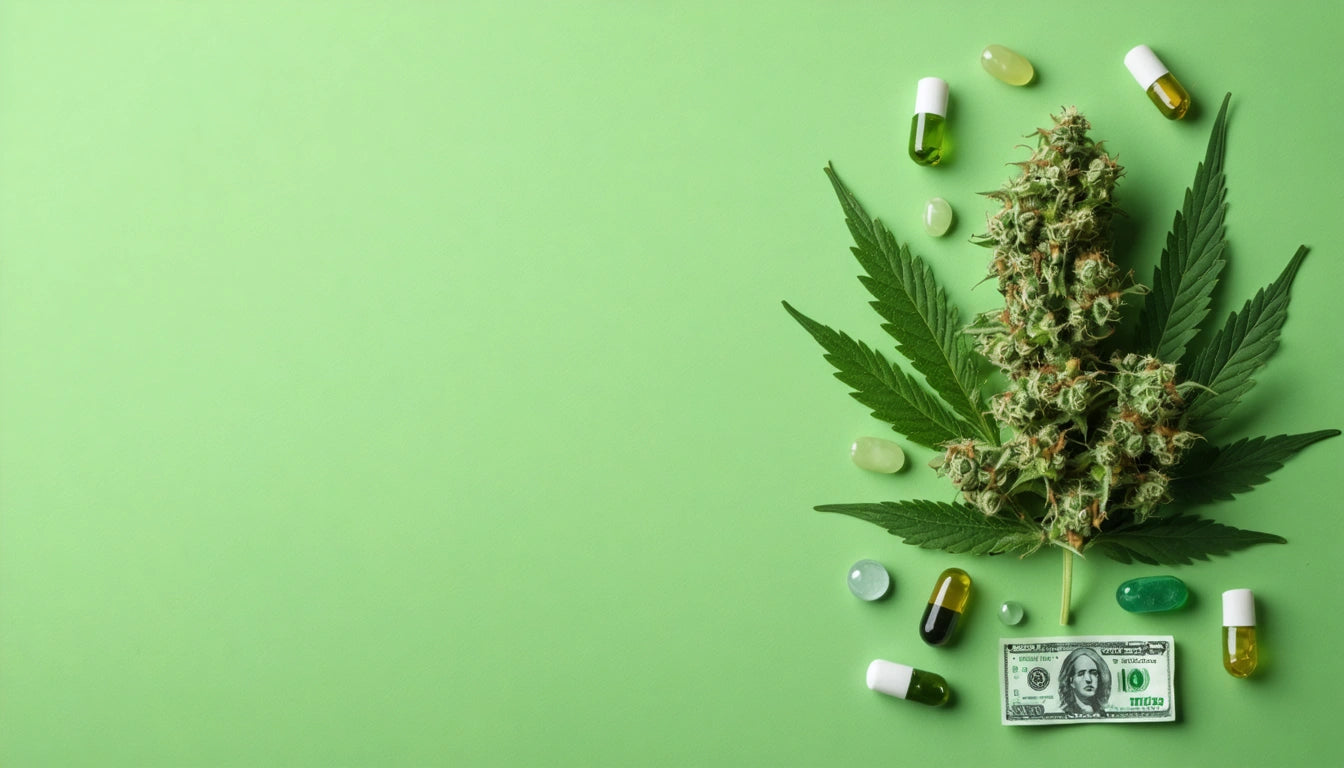Table of Contents
Understanding THCA: The Natural Compound in Cannabis and Its Effects
THCA (tetrahydrocannabinolic acid) is a naturally occurring compound found in raw and live cannabis plants. As interest in cannabis compounds grows, many consumers are asking what THCA is in weed and how it differs from the more well-known THC. This comprehensive guide explores THCA, its effects, and its relationship with other cannabinoids.
What is THCA in Cannabis?
THCA is the precursor to THC and exists abundantly in fresh cannabis plants. It's a non-psychoactive cannabinoid, meaning that in its raw form, THCA does not produce the intoxicating effects typically associated with cannabis consumption. This natural compound is synthesized in the trichomes of the plant and represents one of the many cannabinoids present in the cannabis plant.
Many people wonder if THCA is natural or synthetic. THCA is completely natural, produced by the cannabis plant as it grows. Unlike some cannabinoids that can be artificially created in laboratories, THCA is not synthetic but a natural component of the cannabis plant's chemistry.
The Chemistry of THCA
THCA has the chemical formula C22H30O4 and features a carboxylic acid group that distinguishes it from THC. This acid group prevents THCA from binding effectively to cannabinoid receptors in the body, which explains why raw cannabis containing high levels of THCA doesn't produce psychoactive effects when consumed without heating.
THCA vs THC: Understanding the Differences
The primary difference between THCA and THC lies in their molecular structure and effects. Understanding the differences between THCA and THC is crucial for consumers seeking specific benefits from cannabis products.
When cannabis is heated through a process called decarboxylation (via smoking, vaping, or cooking), THCA converts to THC. This transformation involves the removal of the carboxylic acid group from the THCA molecule, allowing the resulting THC to interact with the body's endocannabinoid system and produce psychoactive effects.
How THCA Works in the Body
What does THCA do in the body? While research is still emerging, THCA interacts with the body differently than THC. Since it doesn't readily bind to cannabinoid receptors, its effects are not psychoactive. However, preliminary research suggests THCA may have various potential therapeutic properties.
Potential Effects of THCA
- Anti-inflammatory properties
- Neuroprotective potential
- Anti-nausea effects
- Possible anti-proliferative effects
Does THCA work for therapeutic purposes? While anecdotal reports suggest benefits, scientific research on THCA's therapeutic potential is still in early stages. The effects of THCA are generally subtle compared to THC, and more clinical studies are needed to fully understand its mechanisms and potential applications.
THCA Products: From Flower to Concentrates
As interest in THCA grows, various products have emerged in the market. THCA bud refers to cannabis flower that has been cultivated and handled to preserve high levels of THCA. These products are often marketed for their potential to be converted to THC or for those seeking the potential benefits of raw cannabinoids.
THCA flower cultivation focuses on maximizing THCA production through specific growing techniques and genetic selection. Beyond flower, THCA is available in various forms:
Types of THCA Products
- THCA crystalline or powder (nearly pure THCA)
- THCA tinctures
- Raw cannabis juices
- THCA diamonds (concentrates)
- THCA edibles (unheated)
Do THCA edibles work? This depends on the intended effect. Unheated THCA edibles won't produce intoxication but may offer other potential benefits. However, if these edibles are baked or heated during preparation, some THCA will convert to THC, potentially producing psychoactive effects.
Why THCA Percentages Matter
What is a high THCA percentage? Cannabis flower typically contains between 15-25% THCA, with some premium strains exceeding 30%. These percentages matter because they indicate the potential THC content after decarboxylation.
To estimate the potential THC content from THCA, multiply the THCA percentage by 0.877 (which accounts for the molecular weight difference after decarboxylation). This calculation helps consumers understand the potential potency of their cannabis products.
How much THCA is in weed varies significantly based on strain genetics, growing conditions, and harvesting techniques. While all cannabis contains some THCA, the concentrations differ dramatically across varieties and cultivation methods.
Safety Considerations for THCA Products
As with all cannabis products, safety considerations are paramount. Since THCA can convert to THC when heated, products containing THCA should be handled responsibly. This is especially important regarding storage and keeping products away from children.
The importance of proper packaging cannot be overstated. According to safety guidelines for potentially harmful substances, proper child-resistant packaging is essential for cannabis products to prevent accidental ingestion by children. This is particularly relevant for THCA products that may look appealing but could convert to THC if heated or processed incorrectly.
Does THCA smell like weed? Yes, THCA-rich cannabis typically has the characteristic aroma associated with cannabis, as the terpenes responsible for the smell are present regardless of the THCA content. This makes proper storage even more important to maintain discretion and freshness.
The Future of THCA Research and Applications
The cannabis industry continues to evolve, with ongoing research into cannabinoids like THCA opening new possibilities for therapeutic applications. As legal frameworks adapt and scientific understanding deepens, we can expect more specialized THCA products and clearer guidelines on their use.
Research into THCA extraction and production methods is advancing, potentially leading to more efficient processes and purer products. Additionally, as consumers become more knowledgeable about cannabinoids beyond THC and CBD, the market for specialized products targeting specific effects or benefits will likely expand.
For those interested in exploring THCA, starting with reputable sources of information and high-quality products is essential. Understanding what THCA is, how it works, and its potential effects empowers consumers to make informed choices about cannabis products that align with their specific needs and preferences.











Leave a comment
All comments are moderated before being published.
This site is protected by hCaptcha and the hCaptcha Privacy Policy and Terms of Service apply.